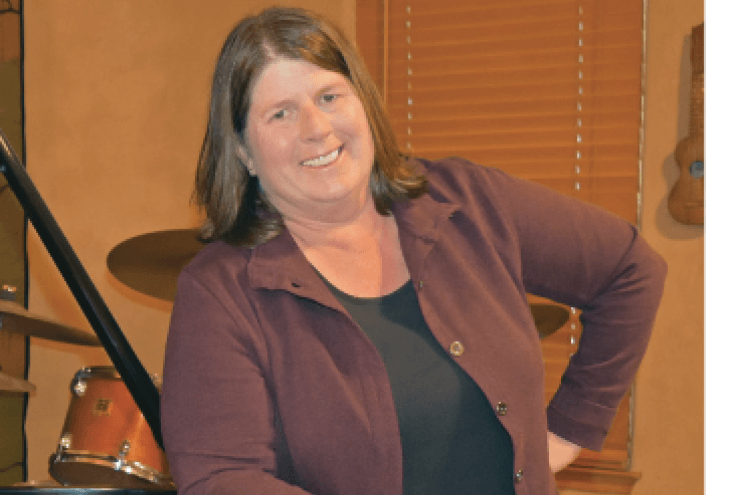“Every day we work toward solving hard technical problems that matter.”
Not long ago, Ginger Hernandez and her husband, Emmanuel, went to a social gathering at a neighbor’s house. When a woman there asked Hernandez how her day was, Hernandez told her it was “fantastic!” Hernandez, Cherokee, says her answer was delivered with such enthusiasm that it prompted a little skepticism. “The woman said, ‘Really? It was fantastic?’ And I told her yes, it really was.”
Though that exchange may appear to have been fairly innocuous, the fact that Hernandez can so emphatically affirm how well her day-to-day life is going is truly an againstthe-odds achievement. Besides her long and happy marriage, a big reason for Hernandez’s good spirits and self-assurance is the work she does as a principal member of the technical staff in R&D and engineering at the Sandia National Laboratories in Albuquerque, N.M.
More specifically, Hernandez, this year’s Technical Excellence Award winner, plays a key role in the nation’s defense. “My group follows the progress and development of foreign nuclear weapons programs so that we can inform policymakers about what is going on in other nationstates and recommend countermeasures,” says Hernandez, whose fact-based and technically grounded analyses have helped guide decisions within the defense community. On five occasions, these analyses were briefed to the president of the United States.
Not surprisingly, the work is immensely satisfying to Hernandez, as is the opportunity to lead a group of talented and motivated colleagues. “Every day we come in and learn something new. More than that, our analyses are actual intelligence products and are reviewed by and coordinated with several government intelligence agencies,” she says. “Every day we work toward solving hard technical problems that matter. My group’s analyses support Sandia’s mission to provide advanced technology for the defenders of our nation.”
But Hernandez didn’t arrive at this rigorous and intensely demanding role in our nation’s security on a straight and easy path. By her own account, Hernandez’s life story is “not a fairy tale.” She was raised by parents who actively discouraged her pursuit of education and routinely told her that she was likely to fail in whatever she did. And it wasn’t only at home that Hernandez was told she wasn’t worthy. While Hernandez was living in Denver, one of many places her father worked as an electrical engineer, her first-grade teacher told her she was “uneducable and needed to be institutionalized.”
Yet despite so many people telling her not to expect much from her life, Hernandez persisted. She was motivated first by a love of music that led her to enroll at the University of Central Florida (UCF). Though she started as a music major, Hernandez worried about the long-term career prospects and eventually switched to chemistry. “When I first started taking chemistry, it was extremely difficult for me, and I had a hard time making good grades,” she says. Eventually, though, Hernandez realized that chemistry fit her strengths — a fact that was reinforced by her undergraduate mentor at UCF, Dr. Michael Hampton, who literally demanded that she follow up her undergraduate degree by pursuing a PhD at Texas Tech.
Hernandez followed Hampton’s advice and graduated from Texas Tech in four years. It was a course of study that typically takes more than seven years. In 1994, as a new PhD graduate, Hernandez was recruited by Sandia and worked in several different technology groups before landing her current role.
The negative experiences that shaped Hernandez have had a profound impact on her attitude about leading people today. “My goal is for everyone to feel very safe on my team. We are very inclusive and want to listen to each other’s ideas, and nobody gets berated or talked down to,” she says. “Because of that, I get the best from everybody, and it makes it safe for people to ask questions and learn and be wrong.”











